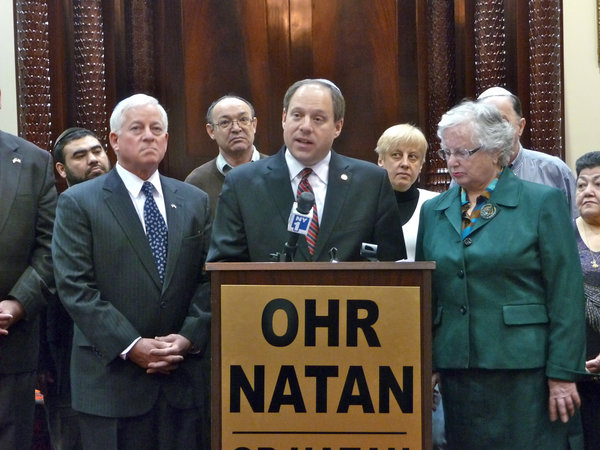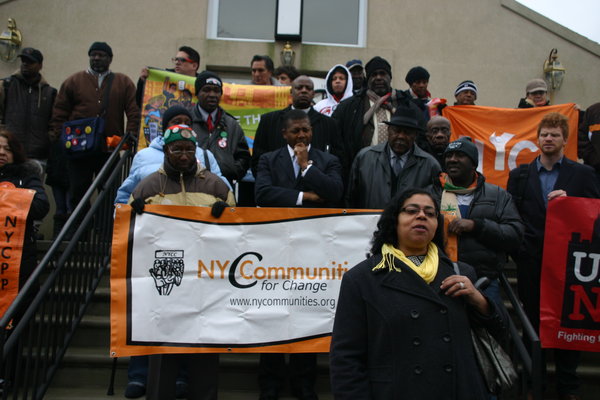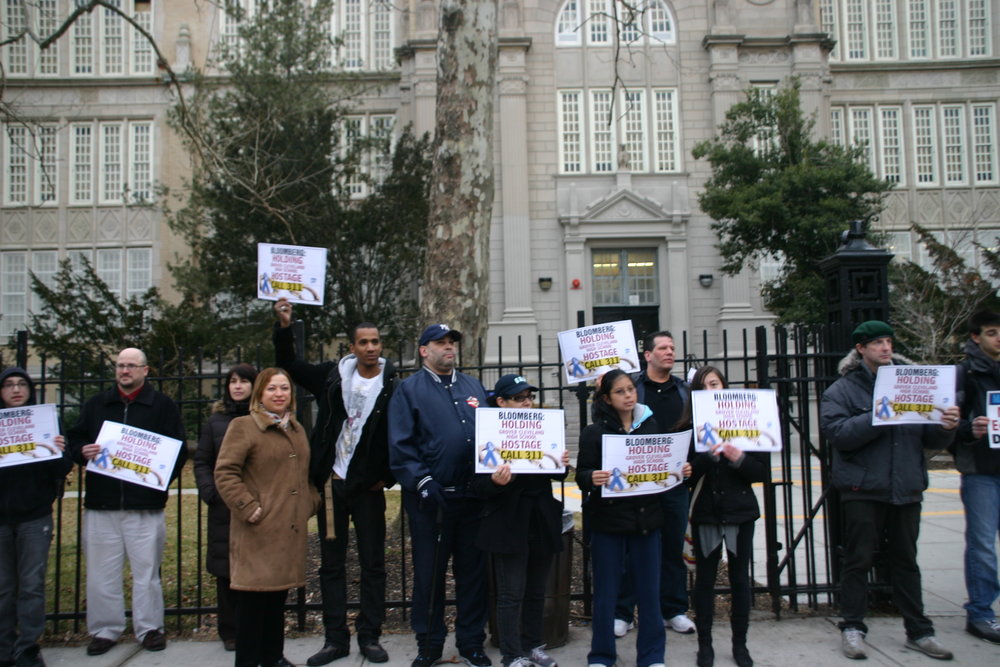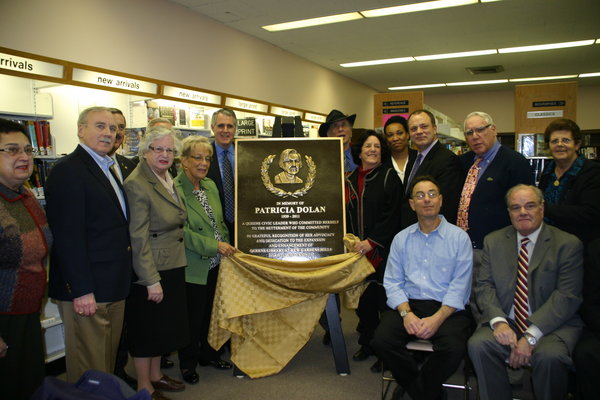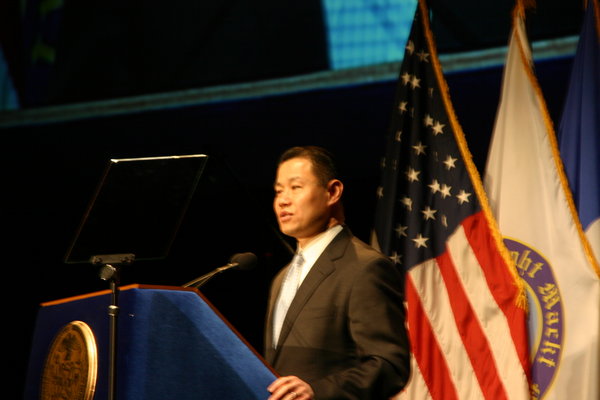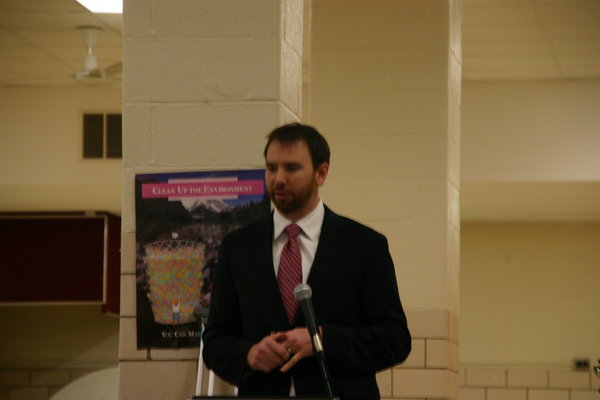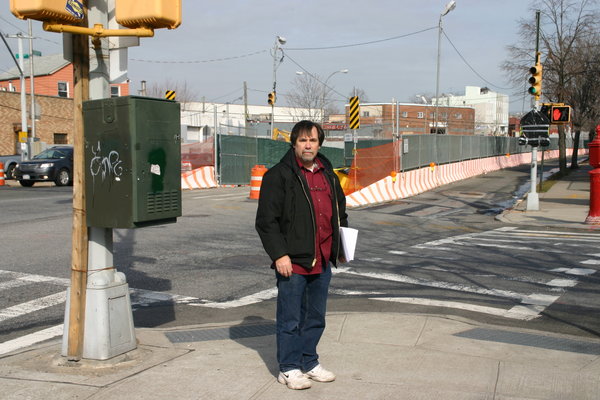Lawmakers back bill to protect houses of worship from vandalism
Assemblyman Rory Lancman has introduced a piece of legislation that would protect houses of worship from vandalism and theft. And assemblymen Charles Lavine, Michael Simanowitz, and State Senator Toby Ann Stavisky are backing it.
The legislation is a direct response to the recent round of incidents aimed at houses of worship across the five boroughs, including the recent mosque bombing in Jamaica.
On Monday, the elected officials stood with Rabbi Nahum Kaziyev and some members of Congregation Ohr Natan in Rego Park – which was subject to anti-Semitic vandalism last November – to express their support of a bill that would increase penalties on those convicted of such crimes.
“We want to make sure that our police and court system are taking those acts of vandalism and theft as seriously as possible, and hopefully deter anybody that is cowardly and lowly enough to steal from or vandalize a house of worship from doing so,” Lancman said.
The legislation would increase the penalty for theft or the intentional damage to a scroll, vessel or any other item used in connection with religious worship in any house of worship to a maximum of seven years in prison from four.
It would classify those kinds of crimes as third-degree grand larceny and second-degree criminal mischief, both Class D Felonies. Currently, those charges would only apply in cases where items worth more than $3,000 have been stolen, or where items have sustained more than $1,500 in damages.
The bill also aims to increase the penalty for theft of any scroll, religious vessel or any other item valued at more than $250 and used in connection with religious worship in any house of worship.
Currently the penalty carries a maximum of seven years in prison by classifying those types of crimes as second-degree grand larceny, which is a Class C felony. If the bill is passed, the maximum years in prison would be 15.
The bill also aims to increase the penalty for any intentional damage to house of worship-owned property to a maximum of four years in prison from one year, by making it a Class E felony. Currently, this penalty applies only where the damage is worth more than $250.
“A crime of hate against one person or one synagogue defiles everybody,” said Stavisky, who is co-sponsoring the bill in the State Seante. “It is a crime against everybody regardless of religion, regardless of nationality.”
Lavine noted that the bill does not require that anyone caught committing vandalism or stealing from a house of worship have any specific intent to commit a hate crime.
According to the law, hate crimes requires proof of a hateful intent. Lancman’s legislation would not require that proof. A suspect would be prosecuted under the law regardless of whether they were motivated by hatred, bigotry or something else.
The bill is drawing up hope for houses of worship who were hit with vandalism or theft, such as Congregation Ohr Natan.
In November, Congregation Ohr Natan was vandalized with anti-Semitic messages, threatening the community of Bukharian Jews who worship at the temple. Rabbi Kaziyev recalled the day vividly.
“I remember the Sunday morning when we came here for services and the members of our center alerted me to the disgusting note we had in big letters on our walls,” he said of a graffiti message that read, “We will never be friends.”
“It’s very hard for something like this to happen in 2011, it’s not easy,” he added. “Our congregation was very upset; We have programs from morning to evening here, we have kids and seniors, and people were concerned.”
Kaziyev said the congregation has increased security around the building since the incident. They now have eight security cameras inside and outside. The suspect has not yet been found.
“We are now more alert,” he said. “Hopefully it was just a one-time incident that won’t repeat itself.”
In addition to the incident at Congregation Ohr Natan, a mosque on the Van Wyck Expressway was fire bombed at the beginning of 2012. In 2008, The Nativity of the Blessed Virgin Church in Ozone Park had its 9/11 memorial lights smashed on church grounds, nd the Avenue Z Jewish Center in Sheepshead Bay had money stolen from its donation box in 2010.
“These crimes are more than the measure of the value of the item that have been stolen; they literally instill fear in the community that uses those houses of worship and for that reason, we think it’s justified to increase the penalties,” Lancman said.

